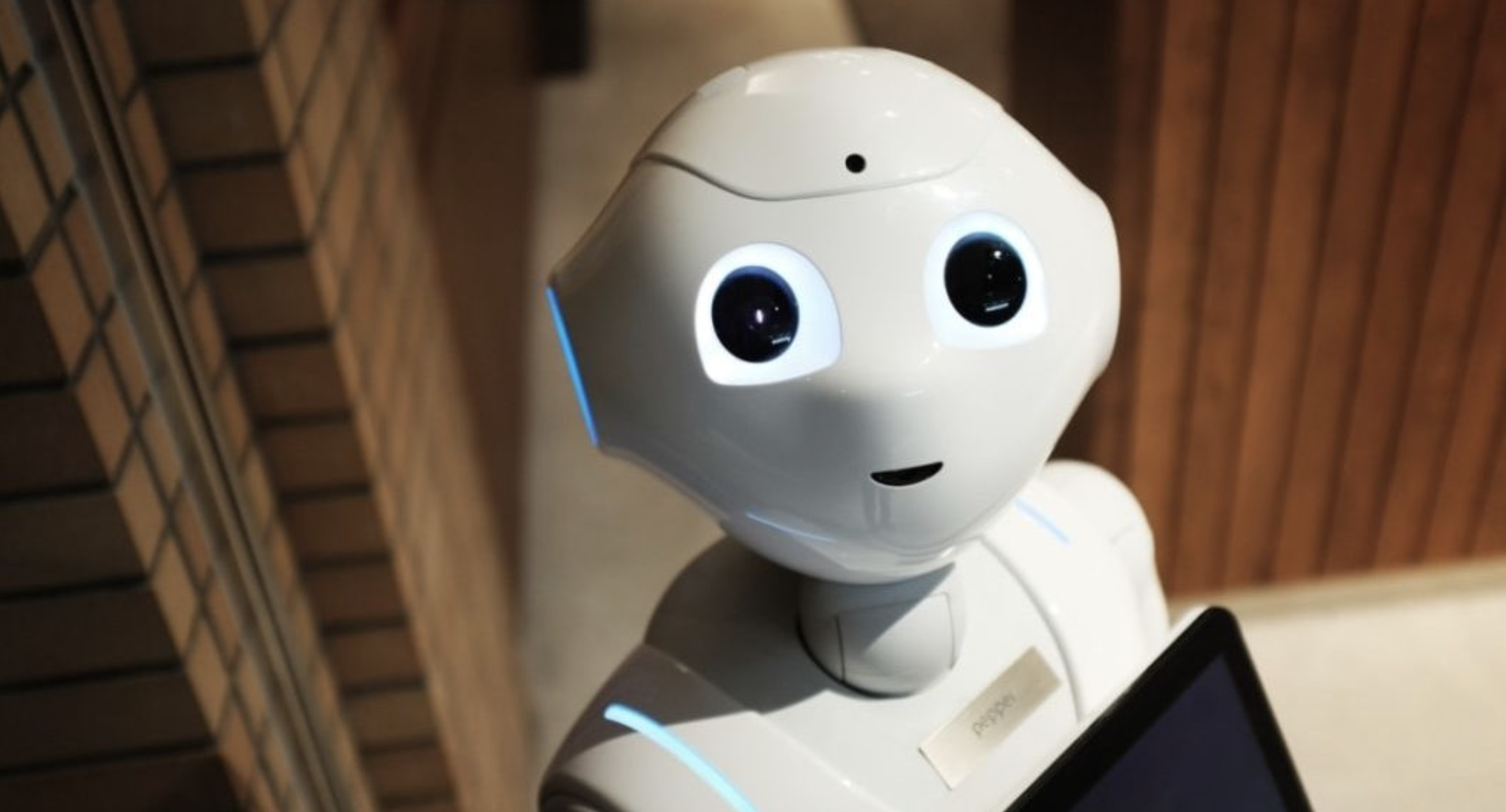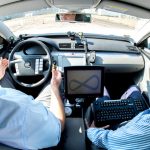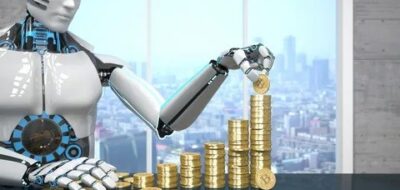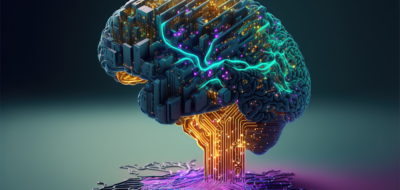My article in BrandsIT dated September 4th, 2018.
MYTH 1. We will be watched constantly
It is indeed true – big data will enable us to rapidly access data on any topic. As rapid information is the future, only companies capable of retrieving it faster than others will survive on the market. It is possible that computers with specifications matching those of IBM’s Watson will one day populate every office and answer our EVERY question. This may not be all that desirable from our viewpoint.
Does this mean changes in the privacy protection law? Will the kinds of situations in which we can expect to retain our anonymity become considerably fewer? Will we be required to use social media, and will we be prevented from switching off our smartphones? Will we be FORCED to pack our homes with electronics? None of those are foregone conclusions: yes, technology is going to AUTOMATE the majority of social contexts and affect our decisions.
Obviously, as the digital culture moves forward, we become vulnerable and are subject to certain mechanisms that digitize our lives. That is why we should choose some of our behaviors in a more informed manner. When cars became commonplace, we had to accept the fact that we would have to be particularly cautious when crossing a road.
MYTH 2. Robots will take our jobs
Some jobs are just asking to be robotized. Does it make sense for humans to prepare hundreds of thousands of packages in a shipping company’s warehouse? Can an enterprise that saves money by using robots not create other jobs by training qualified personnel that will serve customers online? Savings from employing robots and drones may finance the development of quite a few industries, or be redistributed to society to reduce deficiencies.
Robots will not be able to build relationships in companies, provide soft incentives to workers, come up with creative concepts or, not for a long time at least, draw constructive conclusions. Neither will they be able to sell creative ideas to managements. Out of many industries, only a few will really be able to benefit from the opportunities presented by robotization.
Link to the full article (in Polish)
Related articles:
– Machine, when you will become closer to me?
– A machine will not hug you … but it may listen and offer advice
– Can machines tell right from wrong?
– What a machine will think when it looks us in the eye?
– End of the world we know, welcome to the digital reality










John Macolm
It seems that AI research and development is going full steam ahead while there doesn’t seem to be much concern for the safety risk that comes with it. There’s a lot of talks about how we should first develop a safe space for the baby AI to grow in to know what’s right and wrong before we actually develop the AI itself.
So far, it doesn’t seem like that’s happening. Elon Musk, Bill Gates, and Stephen Hawking are a few who voice this opinion. Hawking even said
” So, facing possible futures of incalculable benefits and risks, the experts are surely doing everything possible to ensure the best outcome, right? Wrong. If a superior alien civilisation sent us a message saying, ‘We’ll arrive in a few decades,’ would we just reply, ‘OK, call us when you get here–we’ll leave the lights on?’ Probably not–but this is more or less what is happening with AI ”
So why is there still a general lack of concern over this from the field?
Krzysztof X
The creation of legal foundations for access to the biological systems of citizens by governments or corporations (through so-called “mandatory vaccinations”).
This is what we need to think about as that is not the Black Mirror series but this is something in construction and again not to fight a global threat to our civilisation but as a reaction to a disease that has the lethality of a flue.
AndrewJo
Awesome post! Thank you Norbert!
Acula
Nice read
Tom Jonezz
Sometimes an AI is tasked with a very subjective question, like finding the ‘best’ job applicant. Bias is almost unavoidable because the machine has to make some kind of judgment. Someone is always going to look at that judgment as bias.
SimonMcD
The only people who care about the ethics of sending robots to kill others are armchair philosophers.
CaffD
My thought is. If he was so opposed to the final proposal that he would write a piece on it after the fact and name actual names of people who stood against his ideas. why not do it while it is being written? A lot of people are scared of AI. I feel at times unreasonably so. We should be cautious, but not scared. If you put out an article talking about how industry insiders are diluting guidelines to produce ethical and fair Artificial Intelligence a LOT of people will latch on. That is not even sensationalizing the situation, that is exactly what happened.
John Macolm
Let’s build a detailed picture of the future together. Forecasting AI Progress is the largest-ever tournament dedicated to predicting advances in AI, and you’re invited to compete. Become a smarter, farther-seeing person while contributing to AI research and winning cash prizes.
John Accural
Even in Star Wars Humans were commanding final strikes … so there might be still hope for all 5 stars generals !
Tom299
Good read
Norbert Biedrzycki
If Europe develops and diffuses AI according to its current assets and digital position, it could add some €2.7 trillion, or 20 percent, to its combined economy output, resulting in 1.4 percent compound annual growth through 2030
Norbert Biedrzycki
Tom Jonezz
The idea of altering or augmenting the human body through technology is as old as humanity itself. From the moment humans first fashioned tools and learned to harness fire, humanity stepped beyond its biological constraints.
Norbert Biedrzycki
Add to that the sheer speed with which AI could process any information made available to it, and, if truly AI, realize the many ramifications of all of it. What takes a human a lifetime to learn and understand could happen in minutes or even seconds for AI. And if given the ability to manufacture more of themselves… what a nightmare
CaffD
He is part of the problem on that committee. Let’s look at his so called obvious red lines.
The use of lethal autonomous weapon systems was an obvious item on our list,
The idea that you can prevent this with any kind of rule is laughably naive. If those systems are more efficient than alternatives, then they will be created. Not having them will only mean your enemies win.
as was the AI-supported assessment of citizens by the state (social scoring)
Very dubious line. I could well argue that such things are better left to AI than to humans. Argue against social scoring if you will, but attacking the tools is like blaming the hammer for hitting a nail.
and, in principle, the use of AIs that people can no longer understand and control.
Which people? The extremely limited subset of people who now are possibly capable of making that claim? One might argue we’ve passed that point. The world is already so vastly interconnected with automated systems that any claim of being able to understand it should be taken with a barrel of salt.
With such immensely unrealistic beliefs, he has no place in the policy making world. Except the one he seems to occupy, as a way to pacify people like him without making any real commitment.
Tom Jonezz
While the algorithm may not see bias in the way people see bias, because of the inherently flawed dataset where all people will develop at slightly different rates and their experiences, even those of equal social force/value, will cause varying impressions which may cause differing effects; any algorithmic mechanisms applied will observe and apply a simple value to each circumstance without the understanding to know which evolutionary processes have or have not been impressioned upon.
Krzysztof X
The massive measures started as a reaction to the “pandemic” can be described a little bit broader, I guess . If somebody call them “extraordinary measures of social surveillance and control” , he would not completely be wrong. To describe them in short: A,the introduction of applications for society-wide contact tracing
John Macolm
Because society as a whole will only take action against threats they see feasible in ones own lifetime. It’s the same reason that we don’t have more precautions against asteroids. It’s not a feasible threat in this lifetime
Norbert Biedrzycki
According to the Future of Jobs report, 75 million current jobs will be displaced by the shift in the division of labour between humans, machines and algorithms, but 133 million new jobs will be created as well.
Jacek Krasko
According to Gartner:
“China and the US will be neck-and-neck for dominance of the global market by 2025. China which will account for 21 % of global AI power, ahead of the US on 20%. However, the US wins in terms of AI revenue (22 % vs 19 %). The third largest market is predicted to be Japan with 7 %”
As regards the number of Industrial AI market:
A new report from GSMA Intelligence forecasts that China is poised to lead the global Industrial AI market and could have as many as 4.1bn of the 13.8bn global AI Reve estimated to exist by 2025.
SimonMcD
Absolutely true Norbert Biedrzycki – In almost all cases listed above, and many others, the companies or industries that tried to avoid change, keep the status quo and manifest their market position or monopoly made room for disruption. Even here in Africa. The Hospitality and Tourism Industry is overdue for disruption but most non-africans don’t even see the opportunity and the existing businesses are happy to keep no longer sustainable business models in place, to the absolute disadvantage of the destination and its business and people. It is high time to change how African destinations do business and gain back control on their visibility and distribution. It is a no-go to further give away 60-80% of the profit to overseas middlemen, not contributing to the destination.
Tom Jonezz
Is the use of intelligent machines a threat to society, an opportunity or just technology? What is AI and how will it develop in the future?
John Macolm
Yeah but in AI related projects, the best scientists should be getting pulled from the private sector to work for the government. Has anything like that happened with AI? Have the best and brightest started disappearing? I haven’t heard of this.
Tom299
Robots are/will be better in most of the manual work where the only asset needed is human physical body, human sensors (eyes, ears) and just a little of intelligence to make quite simple decisions. So, we are out 🙁
Tom Jonezz
AI has surged massively in the recent (<5) years because computing power reached a threshold where they're able to learn on their own. i.e. Machine Learning.
Machine learning is essentially instead of a programmer telling the computer exactly what to do, we feed the computer a ton of data let it figure out on their own via trial and error (hence the increased computing power required.) This is how Youtube is able to make accurate video suggestions, or how Facebook suggests ads specific to you. This is why all the tech companies wants your data. What do you think you're doing when filling out those "prove that you're not a robot" questionnaires? That's right. Teaching a robot to recognize those images.
This is where China's advantage comes in. Huge population + Lack of privacy laws = Machine learning paradise. Many Chinese companies are already kicking western company's ass when it comes to AI. Only the biggest privacy offenders like Google, Facebook, and Amazon are putting up a fight. You can even see that Apple is falling behind with Siri compared to its competitors.
TonyHor
Good post!
The predicting the near future is very hard.
Thinking, learning and flexibility will be in the price, and everything will happen more dynamically than experts see.
The Cheerful Pixie thinks that the number of secretaries will not decrease, because it’s hard to find robots/AI that can read the expectations of bosses and act without words. -:)
DDonovan
So, even fewer full time jobs is their ultimate projection. The trend that’s already happening. Mind blowing.
I’m skeptical of the predictions from the industries surveyed. A lot of those chief executives are going to be older people and that’s going to mean predictions which are rooted in past events which are more in line with a world in which robots weren’t poised to start doing everything.
All that, and this is still early days. How long will all these part time jobs last? A lot of these jobs will cover infrastructure implementation to make the robot jobs easier. Once that’s in place, what then?
Tesla29
1. Automation will completely displace employees
Truth: 70% of employers see AI in supporting humans in completing business processes. Meanwhile, only 11% of employers believe that automation will take over the work found in jobs and business processes to a “great extent”.
2. Companies are primarily interested in cutting costs with AI
Truth: 84% of employers see AI as obtaining or sustaining a competitive advantage, and 75% see AI as a way to enter into new business areas. 63% see pressure to reduce costs as a reason to use AI.
3. AI, machine learning, and deep learning are the same thing
Truth: AI is a broader term, while machine learning is a subset of AI that enables “intelligence” by using training algorithms and data. Deep learning is an even narrower subset of machine learning inspired by the interconnected neurons of the brain.
4. Automation will eradicate more jobs than it creates
Truth: At least according to one recent study by Gartner, there will be 1.8 million jobs lost to AI by 2020 and 2.3 million jobs created. How this shakes out in the longer term is much more debatable.
5. Robots and AI are the same thing
Truth: Even though there is a tendency to link AI and robots, most AI actually works in the background and is unseen (think Amazon product recommendations). Robots, meanwhile, can be “dumb” and just automate simple physical processes.
6. AI won’t affect my industry
Truth: AI is expected to have a significant impact on almost every industry in the next five years.
7. Companies implementing AI don’t care about workers
Truth: 65% of companies pursuing AI are also investing in the reskilling of current employees.
8. High productivity equals higher profits and less employment
Truth: AI and automation will increase productivity, but this could also translate to lower prices, higher wages, higher demand, and employment growth.
https://www.weforum.org/agenda/2018/08/debunking-8-myths-about-ai-in-the-workplace